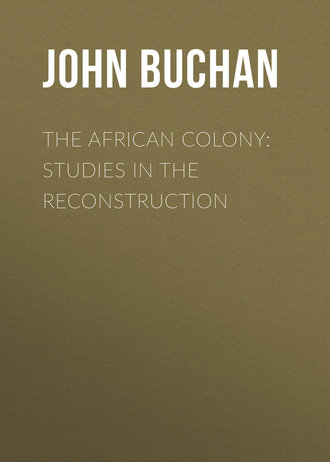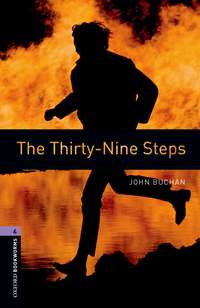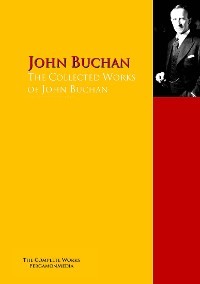 полная версия
полная версияThe African Colony: Studies in the Reconstruction
Such are a few of the proofs advanced on behalf of a hypothesis which is in itself highly probable.2 It is not a history of generations but of æons, and we cannot tell what were the fortunes of that mysterious land from the days when the Phœnician power dwindled away to the time when the Portuguese discovered the gold mines and framed wild legends about Monomotapa. The most probable theory is that the old Semitic settlers mingled their blood with the people of the land, and as the trade outlets became closed a native tribe took the place of the proud Phœnician merchants. In the words of Mr Selous, “the blood of the ancient builders of Zimbabwe still runs, in a very diluted form, in the veins of the Bantu races, and more especially among the remnants of the tribes still living in Mashonaland and the Barotsi of the Upper Zambesi.” The Makalanga, or Children of the Sun, whom Barreto fought, were in the line of succession from the Phœnicians, as the Mashonas are their representatives to-day. In Mashona pottery we can still trace the decorations, which are found on the walls of the Zimbabwes: the people have something Semitic in their features, as compared with other Bantu tribes; they know something of gold-working, a little of astronomy, and in their industries and beliefs have a higher culture than their neighbours. Their chiefs have dynastic names; each tribe has a form of totemism in which some have seen Arabian influences; and in certain matters of religion, such as the sacrifice of black bulls and the observation of days of rest, they suggest Semitic customs. So, if this hypothesis be true, we are presented with a survival of the oldest of civilisations in the heart of modern barbarism. The traveller, who sees in the wilds of Manicaland a sacrifice of oxen to the Manes of the tribe, sees in a crude imitation the rites which the hook-nosed, dark-eyed adventurers brought from the old splendid cities of the Mediterranean, where with wild music and unspeakable cruelties and lusts the votaries of Baal and Astarte celebrated the cycle of the seasons and the mysteries of the natural world —
“Imperishable fire under the boughsOf chrysoberyl and beryl and chrysoliteAnd chrysoprase and ruby and sardonyx.”When the Portuguese first landed in East Africa the chief tribe with which they came in contact was the Makalanga in Mashonaland, ruled by the Monomotapa. But before their power waned they had seen that nation vanquished and scattered by the attacks of fiercer tribes from the north, particularly the Mazimba, in whose name there may lurk a trace of the Agizymba, a country to which, according to Ptolemy, the Romans penetrated. For the last four centuries native South Africa has been the theatre of a continuous völkerwanderung, immigrations from the north, and in consequence a general displacement, so that no tribe can claim an ancient possession of its territory. We may detect, apart from the Mashonas, three chief race families among the Bantus – the Ovampas and people of German South Africa; the Bechuanas and Basutos; and the great mixed race of which the Zulus and the Kaffirs of Eastern Cape Colony are the chief representatives. All the groups show a strong family likeness in customs, worship, and physical character. As a rule the men are tall and well-formed, and their features are more shapely than the ordinary negro of West Africa or the far interior. They have a knowledge of husbandry and some skill in metal-working; they have often shown remarkable courage in the field and a kind of rude discipline; and they dwell in a society which is rigidly, if crudely, organised. The Custom of the Ancients is the main rule in their lives, and such law as they possess owes its sanction to this authority. The family is the social unit; and families are combined into clans, and clans into tribes, with one paramount chief at the head, whose power in most instances is despotic, as becomes a military chief. In some of the tribes, notably the Bechuana-Basuto, we find rudiments of popular government, where the chief has to take the advice of the assembled people, as in the Basuto pitso, or, in a few cases, of a council of the chief indunas. The chief’s authority as lawgiver is absolute, but his judgments are supposed to be only declaratory of ancient custom. Socially the tribes are polygamous, and sexual morality is low, though certain crimes are reprobated and severely punished. The prevailing religion is ancestor-worship, joined with a rude form of natural dæmonism. The ordinary Bantu is not an idolater like the Makalanga, but he walks in terror of unseen spirits which dwell in the woods and rivers, – the ghost of his father it may be, or some unattached devils. Ghost feasts are made at stated times on the graves of the dead; and if the ghost has been whimsical enough to enter the body of an animal, that animal must be jealously respected. Each tribe has its totem – the lion, or the antelope, or the crocodile – from which they derive their descent, one of the commonest features of all primitive societies. There seem traces of a vague belief in a superior deity, who makes rain and thunder and controls the itinerant bands of ghosts – a great ghost, who, if properly supplicated, may intercede with the smaller and more troublesome herd. But abstractions are essentially foreign to the Bantu mind, and his modest Pantheon is filled with the simplest of deities.
No priesthood exists, but it is possible for a clever man to learn some of the tricks of disembodied spirits and frustrate them by his own skill. In this way a class of sorcerers arose, who dealt in big medicine and strong magic. They profess to make rain and receive communications from the unseen, to cure diseases and give increase to the flocks, to expound the past and foretell the future. This powerful class is jealous of amateurs, and does its best to remove inferior wizards; but they are always liable to be annihilated themselves by a powerful chief, who is more bloodthirsty than superstitious. Undoubtedly some of these sorcerers acquire a knowledge of certain natural secrets; they become skilled meteorologists, and seem to possess a crude knowledge of hypnotism. They are also physicians of considerable attainments, and certain native remedies, notably a distillation of herbs, which is used for dysentery in Swaziland, have a claim to a place in a civilised pharmacopœia. This rough science is the only serious intellectual attainment of the Bantu, outside of warfare. They have a kind of music which is extremely doleful and monotonous; they have a rude art, chiefly employed in the decoration of their weapons; but they have no poetry worthy of the name; and their only literature is found in certain simple folk-tales, chiefly of animals, but in a few cases of human escapades and feats of sorcery. The lion is generally the butt of such stories, and the quick wit of the hare and the knavery of the jackal are held up to the admiration of the listeners.3
Such are the chief features of Bantu life, and so lived the natives of South Africa up to the early years of last century. But about that time a certain Dingiswayo, being in exile at Cape Town, saw a company of British soldiers at drill, and, being an intelligent man, acquired a new idea of the art of war. When he returned to his home and the chieftainship of the little Zulu tribe, the memory of the soldiers in shakos, who moved as one man, remained with him, and he began to experiment with his army. He died, and his lieutenant Tchaka succeeded to the command of a small but well-disciplined force. This Tchaka was one of those born leaders of men in battle who appear on the stage of history every century or so. He perfected the discipline of his army, armed it with short stabbing spears for close-quarter fighting, and then proceeded to use it as a wedge to split the large loose masses which surrounded him. It was a war of the eagle and the crows. Neighbouring tribes awoke one morning to find the enemy at their gates, and by the evening they had ceased to exist. A wild flight to the north began, and for years the wastes north and east of the Drakensberg were littered with flying remnants of broken clans. All the great deeds of savage warfare – the killing of the Suitors, the fight in the Great Hall of Worms, Cuchulain’s doings in the war of the Bull of Cuailgne – pale before the barbaric splendours of Tchaka’s slaughterings, the Zulus became the imperial power of South-East Africa, and their monarch’s authority was limited only by the length of his impis’ reach. By-and-by his career of storm ceases. We find him ruling as a severe and much-venerated king, arbitrary and bloodthirsty but comparatively honest; a huge man, with many large vices and a few glimmerings of virtue. He was succeeded by his brother, the monstrous Dingaan, who was soundly beaten by the Boers in one of the most heroic battles in history; he in turn gave way to his brother Panda, a figure of small note; and the dynasty ended with Cetewayo and the blood and terror of Isandhlwana and Ulundi.
After Tchaka the man who looms largest in the tale of those wars is Mosilikatse, the founder of the Matabele. The Zulu conquests placed terrible autocrats on the throne, and the marshal who incurred the king’s displeasure had to flee or perish. To this circumstance we owe the Angoni in Nyassaland and the empire of Lobengula. About 1817 Mosilikatse with his impi burst into what is now the Orange River Colony, driving before him the feeble Barolong and Bechuana tribes, and established his court at a place on the Crocodile River north of the Magaliesberg, where a pass still bears his name. He began a career of wholesale rapine and slaughter, till, as Fate would have it, he came in contact with the pioneers of the Great Trek. Some hideous massacres were the result, but he had to deal with an enemy against whom his race could never hope to stand. The Boers, under Uys and Potgieter, drove him from his kraal, impounded his ill-gotten cattle, and finally, in a great battle on the Marico River, defeated him so thoroughly that he fled north of the Limpopo and left the country for ever. From the little we know of him he was a cruel and treacherous chief, inferior in strength to Tchaka, as he was utterly inferior to Moshesh in statesmanship. But the men he led had the true Zulu fighting spirit, and in the Matabele, under his son Lobengula, we have learned something of the warriors of Mosilikatse.
A throne which, as with the Zulus and their offshoots, had no strong religious sanction, must subsist either by continued success in battle or a studious statesmanship. Tchaka is an instance of the first; Moshesh, the founder of the Basuto power, is a signal example of the second. The Basutos were driven down from the north by the Zulu advance, and found shelter in the wild tangle of mountains which cradle the infant Orange and Caledon rivers. Moshesh, who had no hereditary claim to a throne, won his power by his own abilities, and on the mountain of Thaba Bosigo established his royal kraal. The name of the “Chief of the Mountain” is written larger even than Tchaka’s over South African history, and to-day his people are the only tribe who have any substantive independence. Alone among native chiefs he showed the intellect of a trained statesman, and a tireless patience which is only too rare in the annals of statesmanship. The presence of French missionaries at his court gave him the means of instruction in European ways, and he was far too clever to have any prejudice against so startling a departure from the habits of his race. He watched the dissensions of the rival white peoples, and quietly and cautiously profited by their blunders. He made war against them as a tactical measure, and after an undoubted victory increased his power by making a diplomatic peace. He left his tribe riches and security, and the history of Basutoland since his day is one long commentary on the surprising talents of its founder. How far the credit is his and how far it belongs to his advisers we cannot tell; but we can admire a character so liberal as to accept advice, and a mind so shrewd that it saw unerringly its own advantage. There is none of the wild glamour of conquest about him, but there is a more abiding reputation for a far more intricate work; for, like another statesman, he could make a small town a great city – and with the minimum of expense.
With the death of Moshesh the history of South Africa becomes almost exclusively the history of its white masters. It is an old country, as old as time, the prey of many conquerors, but with it all a patient and mysterious land. Civilisations come and go, and after a millennium or two come others who speculate wildly on the relics of the old. In some future century (who knows?), when the Rand is covered with thick bush and once more the haunt of game, some enlightened sportsman, hunting in his shirt after the bush-veld manner, may clear the undergrowth from the workings of the Main Reef and write a chapter such as this on the doings of earlier adventurers.
CHAPTER II.
THE GENTLEMEN-ADVENTURERS
The world’s changes, so philosophers have observed, spring from small origins, though their reason and their justification may be ample enough, and exercise the learned for a thousand years. A sailor’s tale, a book in an old library, may set the adventurer off on his voyages, and presently empires arise, and his fatherland alters its history. The world moves to no measured tune; everywhere there are sudden breaks, paradoxes, high enterprises which end in smoke, and pedestrian beginnings which issue in the imperial purple. All things have their ground in theory, and by-and-by a dismal post-mortem science will discover impulses which the adventurer never dreamed of. Few lands, even the most remote, are without this variegated history, and the crudest commercial power is built up on the débris of romance. South Africa, which is to-day, and to most men, a parvenu country, founded on the Stock Exchange, has odd incidents in her pedigree. Eliminate all the prehistoric guesses, strike out the Dutch, and the Old World has still had its share in her fashioning. Europe may seem only yesterday to have finally sealed her conquest, but she has been trying her hand at it for five hundred years. And the result of the oldest struggle has been a curious story of failure – often heroic, seldom wise, but always fascinating, as such stories must be. It is associated with one of the smallest, and to-day the least enterprising, of European peoples; and it has issued in Portugal’s most notable over-sea possession. Every nation has its holy land of endeavour – England in India, France in Algiers, Russia in Turkestan. Such was South Africa to Portugal; much what Sicily was to the Athenians, the place linked with all her hopes and with her direst misfortunes.
Happily the adventure was not without its chroniclers. The Dominican friar, dos Santos,4 has sketched for us the empire at its zenith, and de Barros, the Portuguese Secretary for the Indies, has piously narrated its beginnings. But the matter-of-fact histories disguise the real daring of the exploit. The chivalry of Europe in its most characteristic form was carried 8000 miles from home to an unknown land; civilisation of a kind, a Christian church, a code of honour, the rudiments of law and commerce, and the amenities of life, were planted on a narrow malarial seaboard by men who had taken years in the voyage, and had scarcely a hope of return. It is said that a great part of courage lies in having done the thing before, but there was no such ingredient in the valour of those adventurers. Risking all on a dream, they set off on their ten-year excursions, holding an almost certain death as a fair stake in the game. The tenth who survived set themselves cheerfully to transform their discoveries into a national asset. They colonised as whole-heartedly, if not as wisely, as any nation in the world. And in spite of the narrowest and most pragmatic of cultures, they proved themselves singularly adaptable. The Portuguese gentlemen, for whom the Cancioneiros were sung, became Africans in everything but blood, adopting a new land under their old flag, and doing their best to Christianise and colonise it. It was not their fault that the unalterable laws of trade and the destinies of races shattered in time the fabric at which they had laboured.
In 1445, the year in which Diniz Dias is reported to have rounded Cape Verd, the Portuguese were the most daring seamen in Europe. Dwelling on a promontory, they naturally turned their eyes southward and westward, when peace and a moderate wealth gave them leisure for fancies. Those were the days of the foreglow of the Renaissance. Constantinople had not yet fallen, but the spirit of inquiry was abroad, and a fresh wind had blown among scholastic cobwebs. The Church had her share in the revival. A belated missionary, or, as it may be, commercial, zeal stirred the ecclesiastical powers. Fresh lands might be won for the Cross, and fresh moneys to build new abbeys and endow new bishoprics. The merchants of Lisbon and Oporto saw gold in every traveller’s tale, and gladly risked a bark on a promising undertaking. There lived, too, at the time a sagacious prince, Henry the Navigator, the son of João I. and Philippa of Lancaster, himself an amateur of colonisation, who set the fashion for courtiers and citizens. So the young Portuguese squire, trained in the pride of his caste, his mind nurtured on chivalrous tales, fired readily at the strange rumours, and found a peaceful life among his vineyards no satisfying career for a man. To him the white sea-wall of the harbour was the boundary of the unknown. Out in the west lay the Purple Islands of King Juba, the forgotten Atlantis, the lost Hesperides, and dim classical recollections from the monastery school gave authority to his fancies. There were but two careers for a gentleman, arms and adventure, and the latter was for the moment the true magnet. To him it might be given to find the Golden City, the Ophir of King Solomon, or to penetrate beyond the deserts to where Prester John5 ruled his wild empire in the fear of God. And all the while in Europe men were wrangling over creeds and syllogisms, questioning the powers of the Church, grumbling over dogmas, dying for a few square miles of territory. What wonder if to high-bred, high-spirited youth Europe seemed all too narrow – especially to youth in that south-west corner cut off by the sierras from the world? What mattered desperate peril so long as it had daylight and honour in it? So with hope at his prow and a clear conscience the adventurer set out on his travels.
The first object of Portuguese enterprise was Bilad Ghana, the modern Senegal, which they knew of from Arab geographers. The land route across the Sahara was closed to them, so they were compelled to reach it by sea. It was Henry’s dream to make the country a Portuguese dependency, and Christianise it under the iron rule of the Order of the Knights of Jesus Christ, – one of those schemes in which the crusading spirit and a hunger for new territory are subtly blended in the common fashion of the Age of the Adventurers. It was currently believed that the Senegal River rose from a lake near the source of the Nile, and would thus enable the Portuguese to join hands with the Christian monarch of Abyssinia. A special indulgence was obtained from the Pope for all who fought under the banner of the Order of Christ. And so, blessed by the Church, a series of slave-raids began, which were slowly pushed farther south till Cape Verd was reached, and the great turn of the coast to the east began to puzzle the sea-captains. Henry died in 1460, having added, as he believed, a vast territory to the Portuguese Crown, called by the name of Guinea, which is Bilad Ghana corrupted. That the future interests of its discoverer might be properly cared for the new land was divided into parishes, whose chaplains were bound to say one weekly mass for the Iffante’s soul. By the time of the death of Affonso V. in 1481 the Portuguese had passed the Niger Delta, discovered the island of Fernando Po, and reached a point two degrees south of the equator. In 1484 Diego Cam reached the mouth of the Congo, and next year set up a marble pillar at Cape Cross to mark his occupation. Another year and Bartolomeo Diaz touched at Angra Pequena, pushed round the Cape, keeping far out to sea, to Algoa Bay; and on returning discovered that Cabo Tormentoso which his king christened Cabo da Boa Esperanza, the first earnest of the hope of the new road to the Indies. Portugal had taken rank as the first of seafaring powers, and, in Politian’s words, stood forth as “the trustee of a second world, holding in the hollow of her hand a vast series of lands, ports, seas, and islands revealed by the industry of her sons and the enterprise of her kings.” Politian asked that the great story might be written while the materials were yet fresh, but unfortunately Portugal was richer at that time in sea-captains than in men of letters.
On July 8, 1497, Vasco da Gama, the greatest of the world’s sailors, left Lisbon on the greatest of all voyages. The circumnavigation of Africa was imposed upon the Archemenid Sataspes as a “penalty worse than death,” but to those adventurers death itself was an inconsiderable accident. Five years before Columbus had made his first journey, an enterprise not to be named in the same breath as da Gama’s. On Christmas day, having safely passed the Cape, he came to a land of green, tree-clad shores, which he piously christened Natal. He pushed on past the Limpopo and the Zambesi delta to Mozambique, where he found an Arab colony, and to Mombasa, where the chief street still bears his name. He reached Calicut safely on May 20, 1498, ten months and twelve days after leaving Lisbon; and two years later he returned home with one-third of the crew he had sailed with. The Grand Road was now defined; thenceforth it was a trade-route to which commerce naturally turned. No more romantic voyages were ever undertaken, for in those forlorn latitudes Christian and Muslim, East and West, met in war and peace, and creeds and ideas clashed in the strangest disorder. In the expedition of 1500 under Pedro Alvarez Cabral two men were set ashore at Melinda, north of Mozambique, to look for Prester John, and history is silent on the fate of the unfortunate gentlemen. In da Gama’s second voyage Nilwa was captured and the Portuguese East African empire began. A fierce enthusiast was this same da Gama, for, meeting with a great ship of the Sultan of Egypt, filled with Muslim pilgrims, he looted it from stem to stern, and sent every pilgrim to Paradise.
After da Gama came Affonso d’Albuquerque, who seized Goa, and established his country’s hold on the Malabar coast, and pushing on captured Malacca, the richest of the Portuguese trading stations. He swept all alien navies from the Eastern seas, and established on a sound basis of naval supremacy a great commercial empire. Nothing less than the conquest of Turkey would satisfy him. He dreamed of allying himself with Prester John, and establishing himself on the Upper Nile; and again of raiding Medina, carrying off Muhammad’s coffin, and exchanging it for the Holy Sepulchre at Jerusalem. He captured Hormuz on the Persian Gulf, and with it the enormous trade between India and Asia Minor; and he was on the eve of leading an expedition against Aden, which he saw to be the key of the Red Sea, when he was struck down at Goa, and died, like the great seigneur he was, clothed in the robes of his knightly order. Against his expressed wish he was buried at Goa, for the Portuguese believed that, as long as the bones of their intrepid leader lay there, their Empire of the East would stand. So died the foremost of his countrymen, one who may rank with Olive as the greatest of Christian viceroys.
Meantime the East African power had been fully established. Sofala and Mozambique, the chief cities of the coast, had fallen to the Portuguese, and their eyes turned to what they believed to be the fabulously rich hinterlands, where Solomon had won his gold and ivory, and Arab traders had for centuries found their hunting-ground. The Monomotapa, the chief or emperor of the Makalanga, whose Zimbabwe was situated somewhere in what we now know as Mashonaland, took the place of Prester John in their imagination. They pushed up the Zambesi, founding trading stations on the way, which still survive. They found Ophir in every Bantu name, and began that long series of meaningless wars of conquest which in the end shattered their dream of empire. Gold-seeking has never been an enterprise blessed of Heaven; and the Portuguese were more unlucky than most adventurers. They found themselves involved in desperate wars; fever and poison carried off their leaders; and the grandees, like Barreto and Homem, who in cuirasses and velvets held indabas with Makalanga chiefs, got little reward for their diplomacy. Soon the horizon narrowed, boundaries were defined, and the colonist sat down in the coast towns to make a living by legitimate trade.











